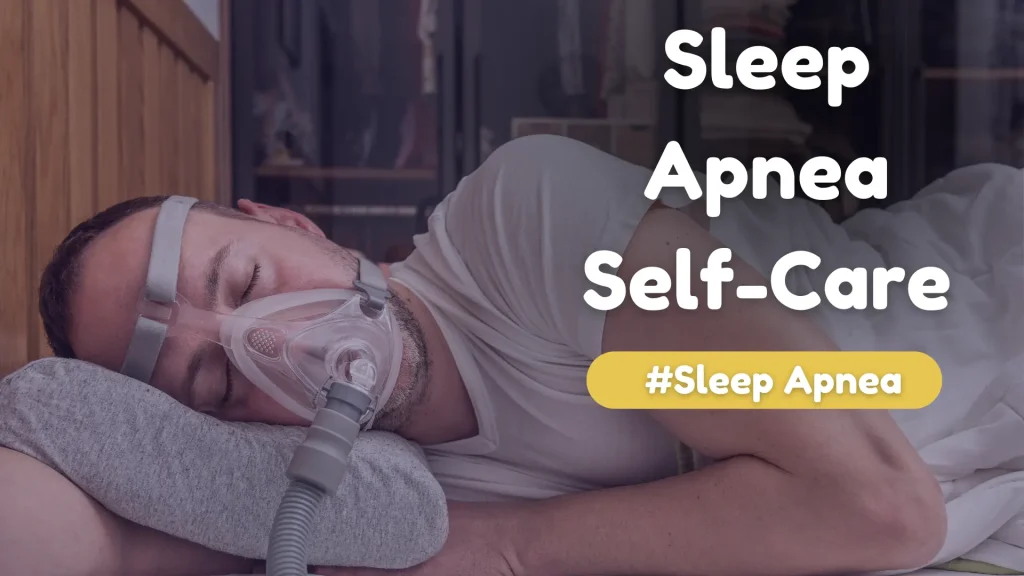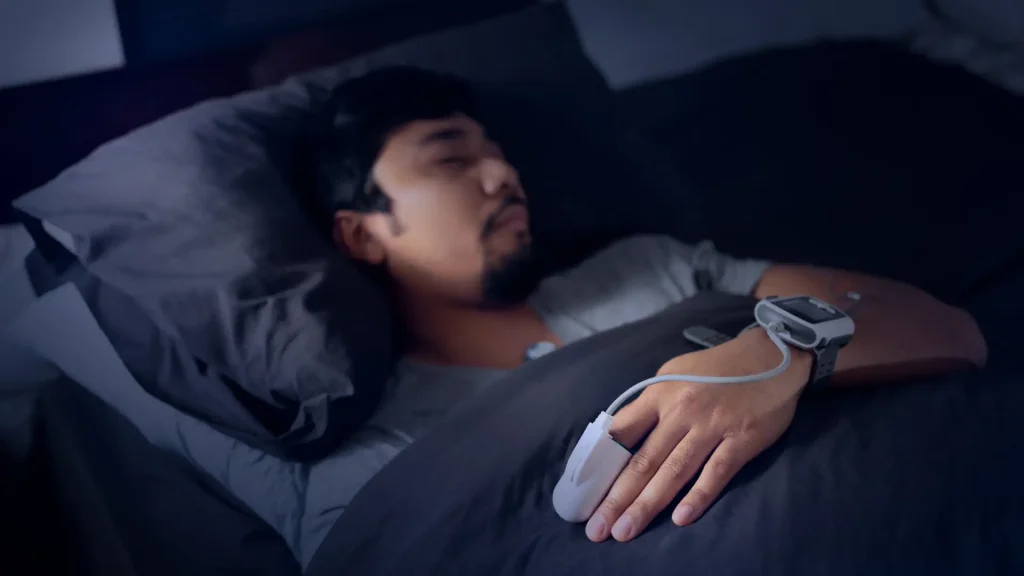Posted on Friday, August 30th, 2024 at 2:05 pm
Sleep apnea can feel overwhelming, especially if you’ve struggled with sleep issues for years without understanding why. However, taking control of your sleep health is within your reach. Self-care plays a crucial role in managing sleep apnea effectively. With the right approach, you can significantly improve your sleep quality, overall health, and well-being. Here’s how you can start taking better care of yourself today.
Understanding Sleep Apnea
The first step in self-care is understanding what you’re dealing with. Sleep apnea is a sleep disorder characterized by repeated interruptions in breathing patterns during sleep. These pauses can last from a few seconds to minutes and may occur 30 times or more per hour. The most common type is obstructive sleep apnea (OSA), which occurs when blocking your airway, causing it to collapse during sleep.
The Importance of Sleep Apnea Self-Care
While professional diagnosis and treatment are essential, incorporating self-care practices into your daily routine can significantly enhance your sleep quality and overall well-being. Some effective self-care strategies for managing sleep apnea include:
Maintain a Healthy Weight
Excess weight, especially around the neck, can contribute to sleep apnea by putting pressure on your airways. Losing weight can help reduce this pressure and consequently may alleviate sleep apnea symptoms. Consult your healthcare provider to develop a safe and effective weight loss plan.
Establish a Consistent Sleep Schedule
Maintaining a regular sleep schedule helps regulate your body’s internal clock. Try to go to bed and wake up simultaneously every day, even on weekends. On holidays, you can explore different methods to help your sleep apnea, such as adjusting your routine or trying relaxation techniques. This consistency can improve your sleep quality and make it easier to fall asleep and wake up.
Create an Optimal Sleep Environment
Design your bedroom to promote better sleep:
- Keep the room dark, quiet, and cool
- Invest in a comfortable mattress and pillows
- Remove electronic devices that emit blue light
- Consider using blackout curtains or a white noise machine
Practice Good Sleep Hygiene
Develop habits that promote better sleep:
- Avoid alcohol, caffeine, and large meals close to bedtime
- Establish a relaxing bedtime routine (e.g., reading, gentle stretching, or meditation)
- Limit screen time before bed
Sleep Position Matters
Sleeping on your back can worsen sleep apnea symptoms. Try sleeping on your side instead. A body pillow can help you maintain this position throughout the night.
Stay Hydrated
Proper hydration can help reduce mucus in your mouth and throat, which may alleviate sleep apnea symptoms. However, avoiding drinking large amounts of water before bed is important to prevent nighttime bathroom trips.
Exercise Regularly
Regular physical activity can help improve sleep quality and reduce sleep apnea symptoms. Aim for at least 30 minutes of moderate exercise most days of the week. Consult with your doctor before starting any new exercise regimen.
Practice Throat Exercises
Certain throat exercises can help strengthen the muscles in your airway, potentially reducing sleep apnea symptoms. Try these exercises daily:
- Push the tip of your tongue against the roof of your mouth and slide it backward for 3 minutes a day
- Purse your lips and hold for 30 seconds
- Open your mouth wide and hold for 30 seconds
Manage Stress
Stress can worsen sleep apnea symptoms. Therefore, incorporate stress-reduction techniques into your daily routine, such as:
- Deep breathing exercises
- Meditation or mindfulness practices
- Yoga
- Journaling
Use Your Prescribed Treatment Consistently
If you’ve been prescribed a CPAP machine or oral appliance, it is important to use it consistently as directed by your healthcare provider. Regularly using these devices can significantly improve your sleep quality and overall health.
Monitor Your Symptoms
Keep a sleep diary to track your symptoms, sleep quality, and any changes you notice. This information can be valuable for your healthcare provider when adjusting your treatment plan.
Regular Check-ups
Schedule regular follow-up appointments with your sleep specialist or dentist at Silent Night Therapy. We can monitor your progress, adjust your treatment as needed, and address any concerns you may have.
The Role of Silent Night Therapy in Your Sleep Apnea Self-Care Journey
Sleep apnea doesn’t have to control your life. In fact, by taking proactive steps in self-care, you can manage your condition and improve your overall health and quality of life. Remember, the journey to better sleep starts with understanding your condition, adopting healthy habits, and staying consistent with your treatment.
At Silent Night Therapy, we’re committed to supporting you in your sleep apnea self-care journey. Our team, led by Dr. Brown, specializes in diagnosing and treating people with sleep apnea using advanced techniques and oral appliance therapy. We work closely with you to develop a personalized treatment plan that complements your self-care efforts.
If you’re struggling with sleep apnea or suspect you might have it, don’t hesitate to contact us at 631-983-2463. We offer comprehensive diagnostic options to ensure you receive the correct diagnosis and the most effective treatment for your unique situation.
Related Posts:
Silent Night Therapy Announces a Faster, More Convenient Way of Testing for Sleep Apnea
Sleep Apnea Testing on the LIRR: Keeping You Safe
Treating Sleep Apnea and TMJ at the Same Time

